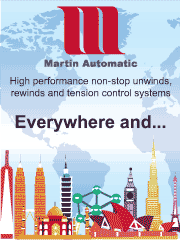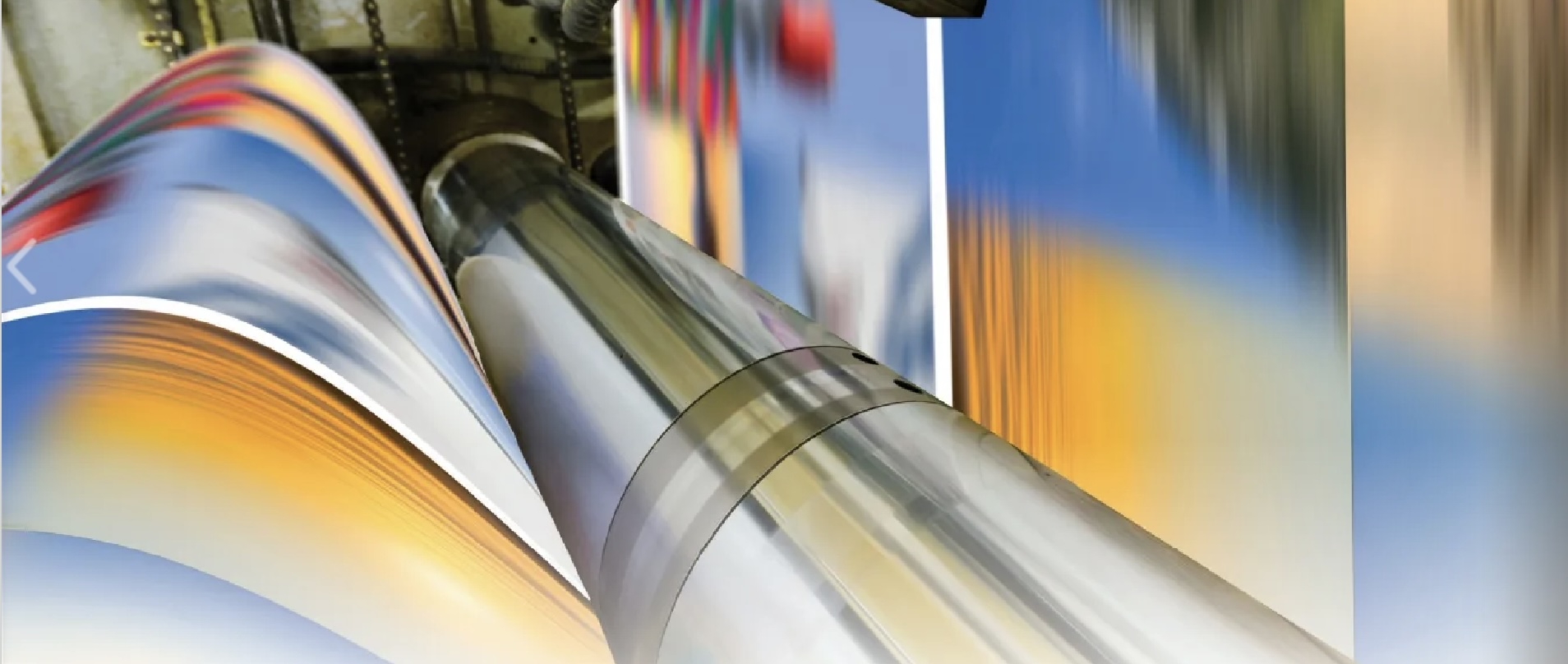The Top Seven Causes of Web Wrinkling
- Published: December 16, 2024
Some Common Cures Get You Back on Target
By Tony Frasier, for Maxcess International
Web wrinkling during converting can come from a variety of sources - sometimes multiple sources. Thus, pinpointing the exact cause and cure is not always easy. In fact, it is often a process of trial and error. There are seven common causes of web wrinkling, and they all have practical solutions. It should be understood up front that no two webs or web lines run exactly the same. Likewise, no two wrinkling issues are identical. The cure for one may not be the cure for another, no matter how alike. In addition, the causes of web wrinkling can vary greatly.
Nonetheless, armed with a better understanding of some of the common causes and cures can help minimize trial and error efforts to get you back on target with your desired productivity and quality goals.
- Poor Machine Alignment
Machine alignment is the first thing to check when experiencing web performance problems. New rollers may be a waste of money if machine stands are not aligned properly. Though most machines are aligned when first installed, misalignment can develop later due to vibration, improper machine or roller maintenance, tension over time, or in colder climates, even freeze-thaw conditions that can shift plant floors.
Poor alignment between rollers can ultimately cause a wide variety of web problems, including drift, flutter and wrinkling. Straightening out the slightest misalignment is critical to achieving a higher quality process.
Though alignment services can be tedious or costly, you may save time and money over other remedies that simply do not work. Checking machine alignment is an essential starting point and a good investment.
- Poor Roller Geometry
Sometimes, a non-cylindrical roller can be the cause. Imagine a race car's tires that are larger in diameter on one side of the car than the other. Due to the unbalance in tire size, the car will turn naturally inward on the oval track.
Likewise, the web will "turn" if the roll is bigger on one side than the other. When the web contacts the following roll at an angle, this roll will try to readjust the web back parallel to the roller's centerline. This generally results in a wrinkle. Poor roll geometry can come from poor craftsmanship in the design and/or manufacture of the roll, from excessive surface wear or from inadequate roll specifications.
- Poor Web Quality
Poor web quality, such as gauge variation or poorly wound parent rolls, can cause all kinds of problems. Excessive parent roll run-out can translate into vibration and web flutter. Inconsistent or poor-quality web material can end up creating wrinkles through the whole process. No roller can totally cure that.
Most machine operators can tell when they have a bad parent roll on the stand. Don't accept inferior parent rolls from your upstream supplier. Once again, do not try to treat the symptom but attack the problem at the source.
- Excessive Roll Deflection
Excessive roll deflection or bowing of the roll under the force or load of the web, can cause wrinkling. It may not be the effect of a single roll that causes the problem, but the effect of the total system.
Like so many other situations, the extent of the problem will depend greatly upon the web characteristics. Small-diameter idlers with long face lengths should raise a red flag for any roller supplier or machine designer.
Roller material (steel, aluminum or carbon composite), roller diameter, wall thickness, face length, web width, shaft sizing and bearing location all have to take load, or deflection, into consideration. To avoid deflection problems, be sure your rolls are properly specified.
When ordering, you should know the amount of web wrap (usually stated in terms such as 10 o'clock to 3 o'clock), web tension (PLI), any nip load (PLI), web width and maximum expected line speed. A good supplier will walk you through these questions and can even help you troubleshoot much of this over the phone.
- Web Expansion
Changes in web conditions, such as increased temperature or moisture content, are likely to cause variation in the web material. For example, when a web tries to expand and it is constrained by frictional contact with a roller, wrinkles are likely to occur. In these cases, a strategically located spreader roll - one with a special surface grooving - can accommodate the variation and alleviate the tendency of the web to wrinkle.
- The Unsupported Web
Too little web support can result in bagging and wrinkling. Unsupported webs are also susceptible to other environmental factors, such as the drafts from nearby equipment or normal plant ventilation. An open door can even cause enough draft to result in wrinkling.
Idlers are typically used to provide needed web support. The very act of wrapping a web around a roller does increase the web's lateral rigidity. The strength and weight of the web will have a lot to do with the number and location of idlers needed. An applications engineer can better troubleshoot your problem when provided an elevation side view indicating rollers and location(s) where wrinkling occurs.
If wrinkling occurs on a longer web span between rollers, additional idler support may be needed. When evaluating web span, consider the width of the web.
A rule of thumb is: short = less than the width of your web; long = 3x the width of your web.
- Improper Web Tension Control
Excessive web tension can wrinkle, stretch or break the web and cause unwanted roll deflection. Excessive tension can come from too much drag on idler rolls (beating friction, roll weight, etc.) or from too many idler rolls between drive sections. Stretched edges and slack centers on the web are common with excessive tension.
Loose webs can also result in wrinkles. Lack of sufficient tension can come from drive sections being out of sync or a poorly designed or calibrated tension control system. Lighter weight rolls may be the solution for tension problems experienced during line speed changes. These idlers can supply support without excessive drag. If the problem persists once the web is up to speed, an idler designed with special free-running bearings may be needed.
If you suspect tension problems are from too many rolls or rolls that are too heavy, try experimenting. Spin individual idlers by hand. Are they hard to turn? Can you selectively remove or replace some rolls and see if problems can be reduced? If you are running a light web at light tension, and all your rolls are heavy steel idlers with sealed bearings, you could try lighter weight idlers with free-running bearings to reduce roll inertia and drag. Lighter materials, such as aluminum or carbon fiber with free-running bearings, can significantly change operating performance.
There is no magic cure for web wrinkling. Do your homework and then look to the experience and advice of a qualified roller manufacturer to help work through the options.
About the Author
Tony Frasier authored this article for Maxcess International, a global leader in innovative products and services for automated web handling applications. Maxcess optimizes peak output performance by leveraging the world's best web handling brands, offering customized, automated, end-to-end sustainable web handling solutions. Visit them online at www.maxcess.com.













